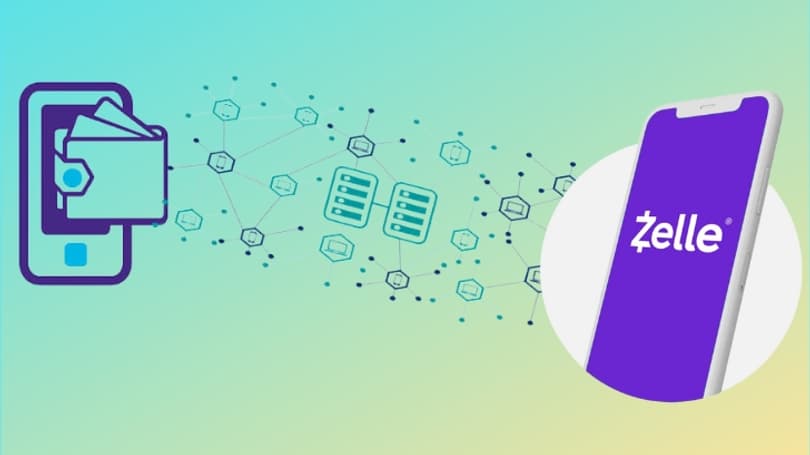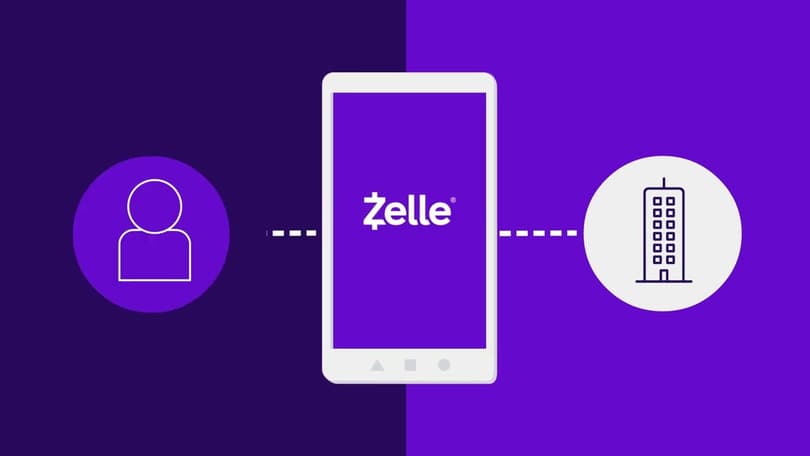How Zelle Works: Definition and Comprehensive Guide

Digital payment platforms make life significantly easier and allow you to transfer funds smoothly and quickly. However, as the modern selection of mobile payment options is quite impressive, you may find it difficult to choose which one to use. Zelle is currently one such solution that provides wide P2P functionality and funds management. It enables users to send and receive money directly from their bank accounts using just a mobile phone number or email address, making transactions faster, more convenient, and more secure.
Still, what is Zelle, and how does it work? This article covers everything you should know about this service, its most helpful features, and how to start using it.
Understanding the Basics of Zelle
How does Zelle work? Zelle is a modern P2P payment app that allows users of mobile devices to quickly transfer funds between bank accounts. With the help of this app, you can send money to another person, even if they use a different bank. One thing to note is that the transfer limits of your bank determine how much money you can send with the app.

Zelle differs from traditional banking methods in a few ways. The two main advantages offered by the service are instant money transfer and the absence of fees. If you go the traditional route of sending money from one bank to another, you will have to wait for the money to be sent. And, you are likely to pay fees, which often make it completely unreasonable to transfer funds, especially smaller sums.
PayPal, Venmo, and Cash App are currently the biggest competitors of the service, but none of these platforms offer free instant transfer, so Zelle truly shines in this aspect. With Zelle, you can quickly send money to your friend or family member and know they will get it without waiting.
What is the Zelle Account Setup Process?
So, how do you set up a Zelle account to start sending or receiving money? Creating a Zelle account takes only a few minutes. Because Zelle has to be linked to a bank account, you should first make sure that your credit union or bank supports this service. You can look up this information on the Zelle website, which currently lists over 1,700 establishments.
Once you know that Zelle works with your bank, you can continue the process:
- Download Zelle for your iOS or Android mobile device from the corresponding app stores.
- After you start the setup process in the Zelle app, you will get a notification to create an account using your bank’s app.
- You should then agree to the terms and conditions and receive a text message or an email letter with a verification code.
Setting up a Zelle account is quick, and you get the benefits of seamless and instant money transfer when you link a bank account. Thanks to the partnership of Zelle with banks, the process is simple regardless of which bank you use.
Zelle: How Does It Work for Sending and Receiving Money?
At this point, you may ask yourself how Zelle works to transfer money. Fortunately, you can send a payment to someone in just a few minutes:
- Find a person you want to send money to
To send money to another person, you should simply enter the phone number or email address they used to create their Zelle accounts.
- Enter the sum you want to transfer
The next step is to enter a sum of money that has to be within the daily and monthly limits. The limit may be different depending on the bank you use, so it’s good to know this beforehand. For banks that do not yet offer Zelle, the weekly limit is $500.
- Send your payment
Tap “Send,” and another user should receive money in just a few minutes. If they don’t have a Zelle account, they will get an email or text so they know what to do to get their payments.
The fact that you don’t enter any banking details when sending money makes the app safer. You don’t have to pay any fees for using the app or transferring funds instantly. Zelle is an ideal option when you need to quickly send a payment to another person instead of giving them cash or choosing a standard bank transfer.
Transaction Fees and Limits of Zelle
What is Zelle transfer, and how does it work in terms of fees? One of the most attractive benefits of Zelle is that you can send money without any fees. As opposed to PayPal or Venmo, you can enjoy an instant transfer without paying a percentage when you use Zelle.
Remember that Zelle has limits on how much money you can transfer in a day, and it all depends on the bank you have connected to the app.
What are Zelle’s payment limits? There are daily and monthly caps. The average daily limit for transferring funds with Zelle is $1,000, but it can vary, as there are banks with higher limits and those that allow you to send $500 per day. The majority of banks that work with Zelle enable users to send at least $5,000 a month.
Such limits are prone to change, so it’s a good idea to check your bank’s website for the necessary information.
BANKS USING ZELLE
Zelle has gained significant traction in the realm of P2P payment platforms. As a result, many national and regional banks and credit unions in the United States have integrated it into their online and mobile banking services. As we’ve already mentioned, the network of participating banks accounts for over 1,700 entities. Such widespread adoption means that millions of consumers have access to Zelle through their existing bank accounts.
Major Banks
- Bank of America;
- JP Morgan Chase;
- Capital One;
- Wells Fargo;
- U.S. Bank;
- PNC Bank;
- Truist.
Other Popular Banks
- Citibanks;
- TD Bank;
- Ally Bank;
- Citizens Bank;
- Discover Bank;
- KeyBank;
- Regions Bank.
Credit Unions
- Navy Federal Credit Union;
- VyStar Credit Union;
- Golden 1 Credit Union;
- Consumers Credit Union;
- Star One Credit Union;
- BECU;
- First Tech Credit Union.
IS ZELLE SAFE?
What is Zelle pay, and how does it work in terms of security? The good news is that Zelle is a safe app, especially if you use it to send money to people you know personally.
The first thing to note is that money can be transferred only between banks insured by the federal government and included as FDIC members, which adds to the security.

Moreover, all the information you need to enter in the app to start sending money is either your email address or your mobile phone number. In this way, you don’t enter your financial data or personal information. This reduces the risk of any fraudulent activity, data leaks, and account hacks.
At the same time, Zelle has several security features to protect data and prevent unauthorized access to your account. The bank you link to your Zelle account should also monitor whether you are the one performing payments.
Even though Zelle doesn’t offer the same level of payment protection as debit or credit cards, it is still a safe app for most transactions.
Conclusion
This is the basic information you should know to answer the question, “What is Zelle, and how does it work?” This payment service can be connected to a wide range of banks, offers instant transfers, and allows you to send money without paying fees. The app can be integrated with thousands of banking apps in the United States and provides a great level of security. So, with its fast transfers and seamless integration with online and mobile banking, Zelle has become a popular choice for individuals looking for an efficient way to manage their finances and exchange money with others.
FAQ
Does Zelle work with international transactions?
No. The app works only in the United States. Both the user who receives funds and the one who sends them need to have a US bank account.
Can I use Zelle without a bank account?
Based on how Zelle works, the answer is no. To perform transactions, a user has to link their bank account to Zelle.
Which geographic regions can use Zelle?
Zelle doesn’t offer services internationally at the moment. The application can be installed and used only by individuals in the United States.
How does Zelle work from bank to bank?
Zelle works the same way regardless of the banks connected to the account, but there is one difference, which is a transfer limit. The amount of money you can send using the app is established by each bank and cannot be changed.




